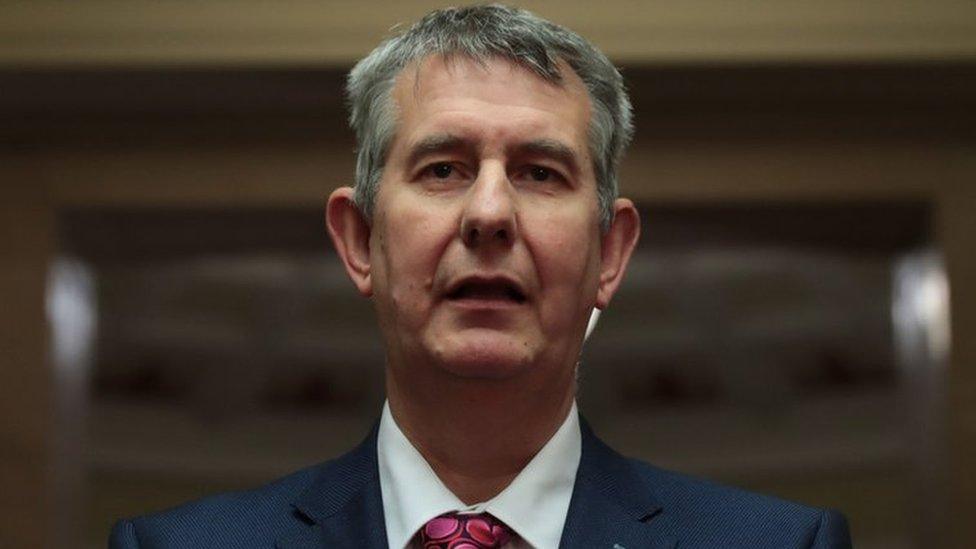NI Protocol: Sea border checks 'not required by EU law'
- Published
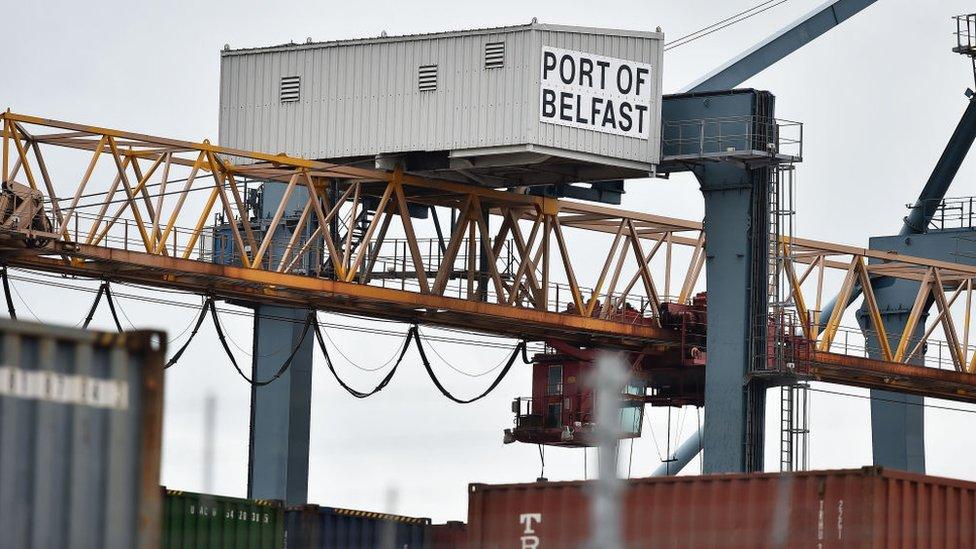
The precise wording of EU regulations do not require GB food products to be checked when entering Northern Ireland, a court has been told.
The argument was made by a barrister representing the Stormont Agriculture Minister Edwin Poots.
Mr Poots ordered his officials to stop carrying out checks in February.
That order has been suspended pending the outcome of the current legal proceedings.
Several parties, including Belfast City Council, are challenging the legality of Mr Poots' order.
Since January 2021 food products being sent from GB to NI have required a range of checks and controls due to the NI Protocol.
The protocol is a deal between the UK and EU which keeps NI in the EU's single market for goods, avoiding the need for a hard border with the Irish Republic after Brexit.
Unionist politicians have condemned what they regard as the imposition of a trade border in the Irish Sea.
John Larkin KC told the High Court in Belfast that the issue hinges on the wording of the Official Control Regulations (OCR), the EU's rules covering agri-food.
Mr Larkin said that the regulations specify that checks must be carried out on certain products on 'first arrival into the [European] Union.'
Those regulations have not been amended or updated to reflect the protocol which means Northern Ireland is outside the EU but is still supposed to follow some EU rules.
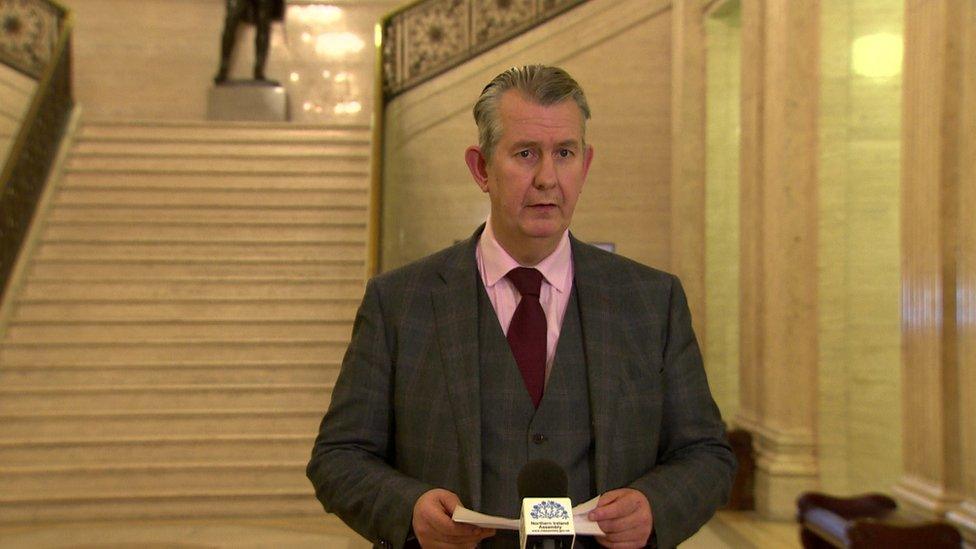
Mr Poots had ordered his officials to halt Irish Sea border checks in February
Mr Larkin said the concept of goods entering the EU is defined as bringing goods into a territory, listed in the OCR, from somewhere outside those territories.
The OCR describes the "territory of the United Kingdom of Great Britain and Northern Ireland."
Mr Larkin said the goods coming into NI from GB are therefore not entering from another territory and so don't need to be checked. "The words could not be clearer," he told the court.
Mr Larkin drew attention to the fact that the protocol does modify the OCR in a very narrow way in respect to testing laboratories but there are no other non-textual amendments.
His interpretation was opposed by a barrister for the UK's Department for Environment, Food and Rural Affairs (DEFRA).
Tony McGleenan KC said it was necessary to look beyond the text of the OCR and apply the "wider legal framework" of the Withdrawal Agreement and the protocol.
The DEFRA case is essentially that references to the territory of the EU in the OCR should be read as including Northern Ireland in the context of trade from GB.
They argue that this reflects the clear intention of the the UK and EU and is underpinned by Article 5 of the protocol which deals with customs and the movement of goods.
Related topics
- Published24 August 2022
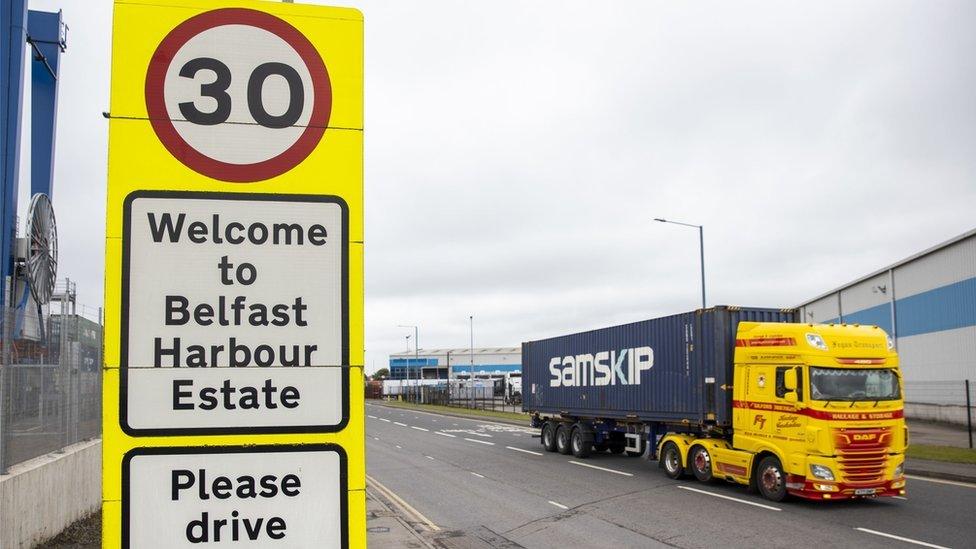
- Published2 February 2022
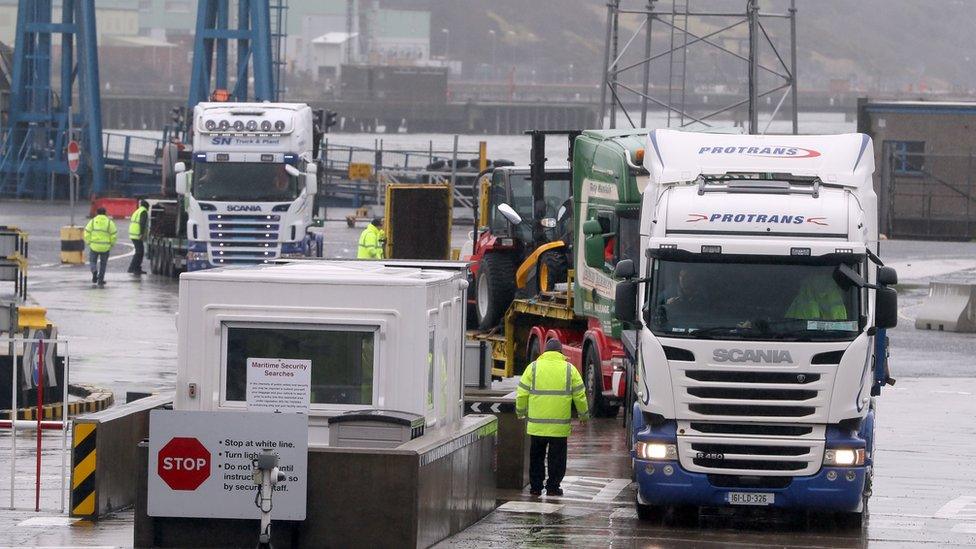
- Published25 January 2022
